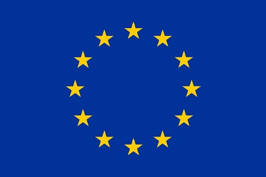By: Laura Allen & Wenqian Xu
I recently saw The Farewell in theaters, a film “based on an actual lie” from writer and director Lulu Wang’s personal experience. The movie follows a family who has decided not to tell their grandmother (in Chinese: Nai Nai), that she has a terminal illness with a prognosis of only 3 months to live. Billi, the protagonist, is a Chinese-American granddaughter in her 20s who feels a strong conviction to tell Nai Nai the truth. The plot follows the ups and downs of the family who has journeyed home to China for a reunion clouded with doubt and gloom for every member of the family except Nai Nai, the unaware, joyous, and self-reliant matriarch.
The conflict of the film represents a complex ethical dilemma in healthcare. The decision to withhold the terminal diagnosis from Nai Nai is presented as common practice in China, and in fact, many procedures are in place within the Chinese healthcare system to allow this to occur.
When older patients are diagnosed with a serious illness (e.g. cancer), doctors in China normatively inform a patient’s family members of the diagnosis first. It is the family members who decide if and when to inform patients. According to hospital regulations, doctors should ask patients or family members (e.g. adult children, guardians) to sign the informed consent. In this case, adult children are commonly asked to sign this consent instead of the older parent(s) with serious illness. Doctors in China typically would not tell patients the extremely negative situation (e.g. how much time is left) if patients don’t ask. Instead, they might suggest transferring patients to better hospitals. Their management techniques are also impacted by how their predecessors have previously dealt with similar issues.
The movie plot explores the matters of paternalism and autonomy, the latter of which is highly valued in Western societies. In the context of health care, a paternalistic action is one which interferes with another person’s decision-making. The decision to remove autonomy from the patient does fall under the description of a paternalistic action, but the concepts of paternalism and autonomy are far from simple and include a variety of motivations.
There can be several motivating factors why a person may choose to act in a paternalistic way, such as protection, safety of self and others, or establishing healthy habits. One of these that can be seen in the film is the protection of the patient from the knowledge of her terminal condition, which Billi’s mother explains would place an emotional burden on Nai Nai greater than the danger of the disease itself. This reasoning could be applied toward a patient of any age, however this situation is more likely to occur when the patient is an older person or a child.
In a podcast episode where Wang relays the story, she explains that her great aunt thought Nai Nai was “too old” to handle the news. The assumption that Nai Nai could not manage her own fears is an example of a paternalistic action based on a stereotype of old age. Another example of an old age stereotype is the assumption that a person’s age would disable them from making a proper decision. If there is reason to suspect a cognitive impairment severe enough to impact decision-making, this should be medically assessed, and not presupposed solely because of age.
When making healthcare decisions, it is important to recognize that there is not one model that fits all patients. The unique personal factors and cultural values involved in each situation should be identified and discussed. For example, Billi feels a keen dissonance of both culture and identity, and it is only when her uncle clearly lays out the differences between the Western individualistic versus Eastern collectivist views of familial function that she understands the family’s motivation. The family chooses to support Nai Nai by protecting her from the burden of knowing her terminal prognosis. While the family’s actions are paternalistic, perhaps they are appropriate, not only because of the larger societal context, but also given their unique familial values and their understanding of Nai Nai’s preferences.
Photo credit: Courtesy of Sundance Film Festival
_
Laura Allen is a PhD fellow within the Marie Skłodowska-Curie Actions ITN EuroAgeism program in the Faculty of Social Sciences at Bar-Ilan University in Israel. Her project is on the spread of ageism in the social network within the long-term care setting. For more information about Laura’s work, visit: https://euroageism.eu/staff/allen-laura/
Wenqian Xu is a PhD fellow in the Division of Ageing and Social Change at Linköping University in Sweden. His doctoral research focuses on age in municipal social media. For more information about his work, visit: https://www.researchgate.net/profile/Wenqian_Xu9


